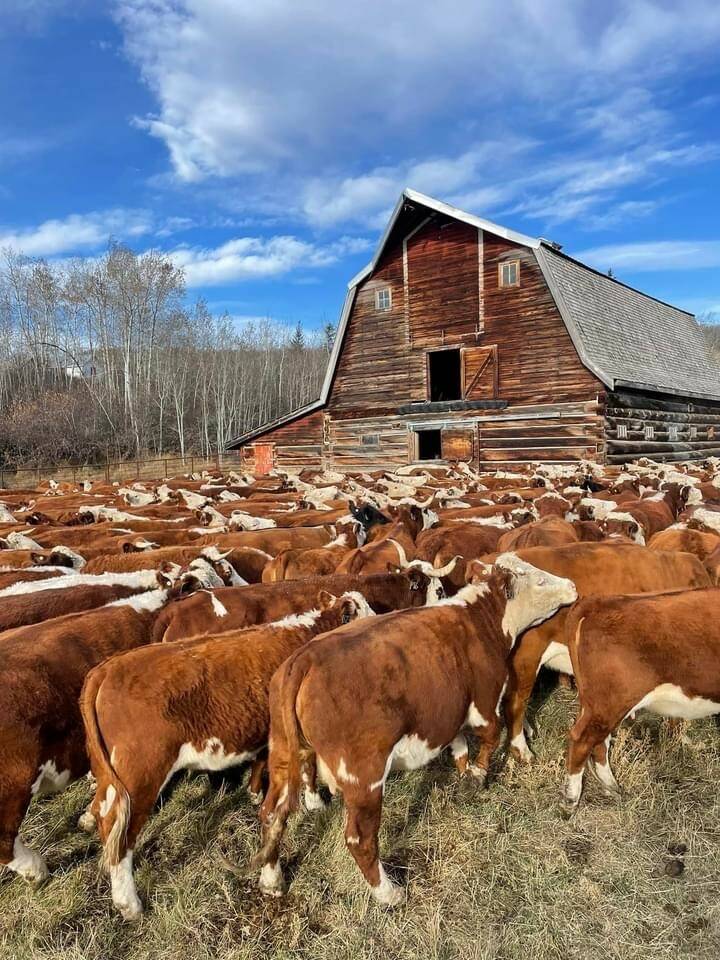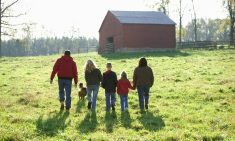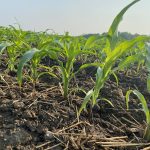Across the U.S., the title “Accredited Farm Manager” is among the country’s fastest growing professional designations, driven by the surge not just in rental acres but also in absentee landowners and in non-ag investors.
The question is, are we going to see more farms run by professional managers in Canada too?
In fact, the farm-manager trend is already beginning to take root here, says appraiser Marleen van Ham, it just hasn’t been labelled yet.
Read Also

B.C. Century Farm focuses on protection and quality of their herd
Despite numerous challeges past and present, this B.C. ranch focuses on what’s within their control to face industry headwinds.
“As farms grow in size there’s certainly room in the Canadian market for such a role,” says van Ham, owner of Agri Choice Real Estate Appraisals Inc. in Tillsonburg, Ont.
In Canada, though, that may be more because the continual growth in farm size is creating farms with more acres and animals than ever before, she says.
In the U.S., the accreditation process is run by the American Society of Farm Managers and Rural Appraisers (which also has a small number of Canadian members, including van Ham).
The ASFMRA is a professional association for rural property land experts, and it offers four designations: accredited farm managers (AFM), accredited agricultural consultants, accredited rural appraiser (ARA) and real property review appraisers.
The organization is responsible not only for their accreditation, but also for their ongoing education and training, and it creates valuable networking opportunities too, attracting the handful of Canadian rural appraisers who belong to it, including some who are designated professional appraisers (currently, there are no AFMs in Canada).
Canadian ASFMRA member and ARA, Brad Slomp, says there’s been a need for third-party farm management in Canada for decades, but on a smaller scale compared to the U.S. Slomp is a rural farm appraiser and partner with Serecon in Calgary, and holds designations on both sides of the border.
“Private land ownership remains the most prominent form of farmland use arrangement in Western Canada, although there is a modestly increasing trend towards more land being leased out,” Slomp says.
To address the need for professional farm and rural property management and to help the company get more involved in the farm management business, Serecon has formed a relationship with the U.S.-based Farmers National Company that provides farm and ranch management services and operates with AFMs.
Where they’ll fit
Are Canadians looking for property management services? Slomp says he’s seeing some increase among beneficiaries who aren’t farming but who want to retain title to land they’ve inherited, and who also want the farm to be profitable and generate annual returns.
While there could be a fit for designated farm managers, though, he’s skeptical the Canadian market has a need for such a formalized role at this time.
Meanwhile, van Ham says the growth in farm size could see the emergence of a new role, with farm management or property advisors sitting at the table alongside owners: “This dynamic is different from what’s going on in the U.S. where more absentee landowners require total farm management, from finding someone to rent their land to selling their grain.”
In many cases, Canadian farm owners already rely on managers or an employee management team. As their farms grow though, van Ham says many Canadian owners inject trusted family members or longstanding employees to help them operate their business and achieve their goals.
That said, creating a management role with formal training or a professional designation might be needed in the near future, she says, especially if skilled farm labour continues to be in short supply or difficult to attract.
The AFM designation’s requirements include a four-year college degree or equivalent, four years of farm or ranch management experience, the ability to create a farm plan, and passing a comprehensive exam.
An ARA designation follows a similar format, focusing on appraisal experience and reporting, and van Ham says it was worth the commitment when she received her designation in 2008 because the Canadian appraisal industry doesn’t offer such specialized education for farming and agriculture. All accredited ASFMRA members must also participate in at least 60 hours of approved continuing education programs every three years.
Lisa Campbell, team lead with Campbell & Company Appraisals Inc. in Grimsby, Ont., also sought an ARA designation in 2016 after working in the appraisal business for more than 20 years. She says the process, combined with her ASFMRA membership, has expanded her knowledge of agriculture and has provided her with the confidence to focus her expertise in appraising agricultural real estate for litigation purposes.
While Campbell is one of few Canadian ASFMRA members, she says the organization has helped foster a regional professional networking group that supports farm and rural appraisers.
Slomp agrees and says Canadian advisors could benefit from programs to help them get more services and support to landowners. But for now, he repeats, the demand for agricultural property management services is still in its infancy.
















